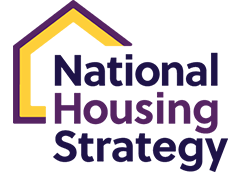Home / Housing Programs and Initiatives
Housing Programs and Initiatives
Canada's National Housing Strategy offers funding through a variety of programs and initiatives. It makes investments in housing working in partnership with non-profits, developers and government entities to increase housing supply and improve quality and affordability.
Addressing the needs across the continuum
Reduce Chronic Homelessness
The Strategy seeks to reduce chronic homelessness in Canada by creating supportive environments and providing essential services to those in need.
- Reaching Home (Infrastructure Canada)
- Veteran Homelessness Program (Infrastructure Canada and Veterans Affairs Canada)
Emergency Shelter and Transitional Housing
The Strategy supports the creation of safe housing options for priority populations through these initiatives.
- Indigenous Shelter and Transitional Housing Initiative
- Affordable Housing Fund (formerly called the National Housing Co-Investment Fund)
- Affordable Housing Innovation Fund
- Federal Lands Initiative
- Rapid Housing Initiative (excluding Emergency Shelter)
Supportive Housing
- Affordable Housing Fund (formerly called the National Housing Co-Investment Fund)
- Affordable Housing Innovation Fund
- Federal Lands Initiative
- Rapid Housing Initiative
Community Housing / Support for Community Housing Sector
The Strategy provides supports to the community housing sector.
- Existing Community Housing Funding
- Affordable Housing Fund (formerly called the National Housing Co-Investment Fund)
- Rapid Housing Initiative
- Affordable Housing Innovation Fund
- Federal Lands Initiative
- Federal Community Housing Initiative
- Community Housing Transformation Centre
- Sector Transformation Fund
- Community-Based Tenant Initiative
Below-Market Housing:
Create New Housing Supply
The Strategy supports the construction of below-market housing units throughout Canada.
- Affordable Housing Fund (formerly called the National Housing Co-Investment Fund)
- Affordable Housing Innovation Fund
- Federal Lands Initiative
- Rapid Housing Initiative
Renew or Repair of Existing Housing Supply
The Strategy allocates resources to support the renewal and repair of existing below-market housing stock.
- Affordable Housing Fund (formerly called the National Housing Co-Investment Fund)
Market Housing
Create Purpose-Built Rental Supply
To address the increasing demand for rental housing, the Strategy promotes the development of purpose-built rental properties.
- Apartment Construction Loan Program (formerly called the Rental Construction Financing initiative)
- Affordable Housing Fund (formerly called the National Housing Co-Investment Fund)
- Affordable Housing Innovation Fund
- Federal Lands Initiative
Improving Homeownership Options
The goal of these programs is to turn homeownership into a reality for first-time homebuyers, with a budget of $1.35 billion.
System Changes to Increase Supply
An allocation of $4 billion is dedicated to implementing systemic changes that enhance housing supply and accessibility.
Initiatives Delivered with Provinces and Territories
With a funding commitment of $15.7 billion, these initiatives aim to support provinces and territories’ priorities. These programs include:
- Provincial/Territorial Priority Funding
- Canada Community Housing Initiative
- Canada Housing Benefit
- Northern Funding
Data, Innovation and Research
The Strategy allocates funds to innovative programs with a focus on closing vital data gaps and enhancing evidence-based decision-making. It also drives research to improve housing interventions, with a commitment of $541 million.
Human Rights-Based Approach to Housing
These programs emphasize an approach to housing rooted in human rights principles, aiming to ensure fairness, inclusivity, active involvement, and responsibility in housing solutions, with a budget of $63 million.
Direct Support Programs
One-Time Direct Support Payments
This $1.2 billion program helped low-income renters with housing affordability issues. It concluded on March 31, 2023.
- Canada Housing Benefit (CMHC and Canada Revenue Agency)

